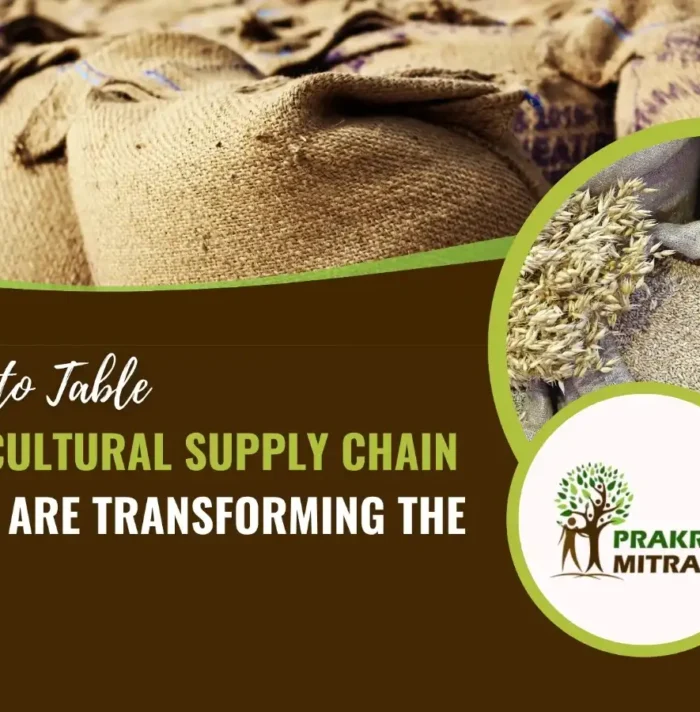Agriculture is at the heart of global food systems, connecting farms to tables all over the world. However, the journey from farm to table is more complex than it appears. Ensuring that food is delivered efficiently, sustainably, and at the right time requires the coordination of numerous processes and players. This is where agricultural supply chain solutions come in, offering innovative ways to streamline operations, reduce waste, and meet growing consumer demands.
As the world grapples with challenges like climate change, population growth, and a shift toward sustainability, agricultural supply chain solutions are playing a crucial role in reshaping the industry. From enhancing operational efficiencies to promoting sustainability, these solutions are becoming indispensable to every stage of the agricultural supply chain.
What are Agricultural Supply Chain Solutions?
Agricultural supply chain solutions encompass a variety of tools, technologies, and practices designed to improve the management, movement, and distribution of agricultural products. These solutions range from advanced logistics technologies, smart farming practices, and crop management tools, to better traceability systems, data analytics, and distribution models. The goal is to optimize efficiency and reduce the barriers that lead to wastage, quality compromise, and poor economic performance in the industry.
At the core of agricultural supply chain solutions is the need to maintain a balance between supply and demand while considering external factors such as climate, geography, and consumer preferences. Through careful planning and advanced technologies, these solutions enable better decision-making and enhanced control over the entire agricultural process.
Key Components of Agricultural Supply Chain Solutions
- Technology-Driven Logistics and Distribution: The logistics of transporting goods from farms to retail outlets or consumers are complicated by the perishable nature of many agricultural products. One of the most significant advantages of agricultural supply chain solutions is the use of technology to improve these logistics. For example, AI-powered routing systems help minimize delivery times and reduce fuel costs, while temperature-controlled storage and transportation systems ensure the freshness of products.
- Data-Driven Crop Management: Precision farming, which involves using data and technology to monitor and manage crop health, is another area where agricultural supply chain solutions shine. By using sensors, drones, and satellite imagery, farmers can collect real-time data on soil conditions, weather patterns, and crop health, allowing for better decision-making regarding irrigation, fertilization, and harvesting. This leads to better yields, fewer resource inputs, and reduced environmental impact.
- Sustainability and Waste Reduction: A growing emphasis on sustainability within agriculture is driving the development of innovative supply chain solutions that focus on reducing waste. From farm-level practices such as composting and recycling to advanced packaging solutions that extend shelf life, these solutions aim to minimize the environmental footprint of food production. Furthermore, reducing food waste at every stage of the supply chain—from harvest to consumer—has a positive impact on both profitability and sustainability.
- Supply Chain Visibility and Traceability: Today’s consumers are more conscious than ever about the food they consume. They want to know where it comes from, how it is produced, and whether it is ethically sourced. Agricultural supply chain solutions enable enhanced transparency by providing traceability from farm to table. Blockchain technology, for instance, ensures that every transaction is recorded and verified, giving consumers confidence in the authenticity and quality of their food.
- Real-Time Monitoring and Reporting: Agricultural supply chain solutions include systems for real-time monitoring of both products and processes. This might involve tracking the movement of goods from farms to retailers or monitoring inventory in real time to prevent overstocking or shortages. The ability to make real-time decisions helps farmers, suppliers, and retailers optimize their operations and respond quickly to demand fluctuations.
- Smart Farming Solutions: With the integration of IoT devices, smart farming solutions have revolutionized crop monitoring and management. Automated irrigation systems, climate control sensors, and livestock management technologies ensure that farming is done more efficiently and sustainably. These innovations are crucial for tackling food security challenges while ensuring that agricultural businesses remain profitable.
- Integrated Communication Platforms: Effective communication is crucial within the agricultural supply chain. Agricultural supply chain solutions often come with integrated platforms that help different stakeholders—farmers, suppliers, processors, retailers, and consumers—communicate seamlessly. This integration allows for better collaboration, faster response times, and more effective decision-making, leading to smoother operations across the entire supply chain.
How Agricultural Supply Chain Solutions are Transforming the Industry
- Enhanced Efficiency and Productivity: Agricultural supply chain solutions streamline every part of the process—from farm management to retail distribution—helping businesses achieve greater efficiency. By leveraging technology, farmers and suppliers can manage resources more effectively, leading to higher productivity and lower costs.
- Improved Quality Control: Maintaining the quality of agricultural products from harvest to delivery is a constant challenge. Through better traceability, real-time monitoring, and controlled distribution systems, agricultural supply chain solutions help ensure that products reach the consumer in their best possible condition. This not only boosts consumer satisfaction but also reduces food waste and spoilage.
- Increased Transparency and Consumer Trust: Modern consumers are increasingly focused on food safety, ethical sourcing, and environmental impact. Agricultural supply chain solutions that offer transparency and traceability increase consumer trust and provide brands with the ability to meet demand for sustainably sourced products. With the help of these solutions, consumers can track the journey of their food, from the farm to the table, which empowers them to make more informed choices.
- Supporting Sustainability Goals: As sustainability becomes a focal point of global agricultural practices, agricultural supply chain solutions are helping reduce the industry’s carbon footprint. From minimizing food waste to reducing energy consumption in transportation and storage, these solutions allow agricultural businesses to operate more sustainably, all while remaining economically viable.
The Future of Agricultural Supply Chain Solutions
The future of agricultural supply chain solutions looks promising. As technology continues to advance, we can expect even more sophisticated solutions that enhance efficiency, improve sustainability, and offer real-time insights. Additionally, blockchain, AI, and IoT technologies will continue to play a larger role in reshaping the industry, offering solutions that are both forward-thinking and consumer-centric.
The continued adoption of these technologies will not only transform the agricultural industry but also make the entire food supply chain more resilient to external disruptions, such as climate change or economic crises. As consumers demand higher standards of sustainability, quality, and transparency, Agricultural supply chain solutions will be instrumental in meeting these expectations.
Contact Us
At Prakruti Mitra, we are committed to providing innovative agricultural supply chain solutions that help businesses in the farming and food industries thrive. Our solutions are designed to improve operational efficiency, reduce waste, and meet the growing demands for sustainability and transparency.


